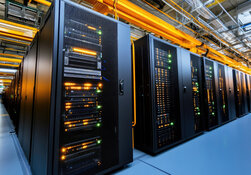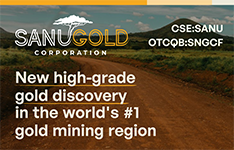Recent reports by experts makes it clear they think the Paris climate agreement limiting global temperatures is effectively dead, according to an article by The Guardian. However, this could be a boon for air conditioning companies and their stocks.
The Paris agreement signed a decade ago by nearly 200 nations aims to limit global warming to below 2 degrees Celsius above pre-industrial levels. But current trends suggest it is going up instead of down, Oliver Milman reported for the site on April 2.
Reports by Morgan Stanley, JPMorgan Chase, and the Institute of Finance all said investors should plan for the worst-case scenario when it comes to climate change.
"We now expect a 3C world," a March analysis by Morgan Stanley noted, according to Milman. "Progress on climate change is likely to fall short of net-zero targets," the report said. "We expect cooling — critical to human health and productivity in many climates — to be a potent long-term growth theme."
According to the article, "This level of global heating above preindustrial times is well beyond the 2C limit agreed to by governments and would lead to catastrophic heatwaves, floods, economic strife and other upheavals."
But the investor research forecasted that the rising heat would be a windfall for air conditioning companies, and the global market could grow by 41% to be worth US$331 billion by the end of the decade.
Banks have also shown signs they are scaling back their concerns over climate, Milman wrote.
"Since December, the six biggest U.S. banks — JPMorgan Chase, Bank of America, Citigroup, Wells Fargo, Morgan Stanley, and Goldman Sachs — have all quit a group called the Net-Zero Banking Alliance, which sets responsible banking practices to meet climate goals," the article noted.
Paddy McCully, senior analyst at Reclaim Finance, a group that pushes financial firms to act on the climate crisis, told the website that, "We are clearly seeing a broad retreat on climate from the finance sector. … It is to a very large extent being influenced by Trump and his agenda of accelerating climate change, although also due to banks using Trumpism as an excuse to roll back commitments that they had never actually intended to keep."
The Catalysts: Heatwaves and Outdated Equipment
According to a report by Markets and Markets, the U.S. HVAC system market is expected to be valued at US$22.35 billion in 2024 and is projected to reach U$32.35 billion by 2029 at a CAGR of 7.7%.
Even before concerns were raised by experts after the U.S. pulled out of the Paris agreement, the HVAC system market was expected to experience significant growth, primarily driven by the rising demand for energy-efficient solutions in response to stricter federal and state regulations aimed at reducing carbon emissions and energy consumption.
"Additionally, extreme weather events like heatwaves and cold snaps are increasing the need for reliable and efficient heating and cooling systems," the firm noted. "The expansion of residential and commercial buildings, particularly in urban areas, further fuels the demand for advanced HVAC technologies. The growing popularity of smart HVAC systems, which integrate IoT and AI for enhanced energy management, is attracting more consumers."
Another factor driving the growth is the replacement of outdated equipment in older buildings, the report said.
Worldwide, Grand View Research noted that the market size for air conditioning systems was valued at US$119.36 billion in 2022 and is expected to grow at a CAGR of 6.9% from 2023 to 2030.
According to The Guardian report, Morgan Stanley acknowledged that surging deployment of air conditioning, primarily in wealthier countries, is not a panacea in a hotter world. If powered by fossil fuels, air conditioning use itself causes more planet-heating emissions that will further raise global temperatures.
"Morgan Stanley Research does not provide firm views, we assess evidence provided by experts such as those developed by the scientific community," said Stephen Byrd, global head of sustainability research at Morgan Stanley. "I would not characterize our view being that 'climate change brings many upsides.' I would instead suggest that we will see large volumes of capital deployed to mitigate the impacts of climate change, and cooling (among other products, such as smart power grids) would be one such category of increased capital allocation."
According to a December 2024 report by Shrabana Mukherjee for Zacks Research, the market includes designers, manufacturers, and marketers of a broad range of products for the heating, ventilation, air conditioning, and refrigeration markets. The products include rooftop units, chillers, air-handling units, condensing units, and coils.
Comfort Systems USA Inc.
Comfort Systems USA Inc. (FIX:NYSE) said it is a leading building and service provider for mechanical, electrical, and plumbing building systems. In 1997, it went public with 12 operating companies. Today, it is composed of more than 45 operating companies in over 170 locations across the United States.
According to its investor's presentation, its revenue is more than US$7 billion a year and it has more than 18,000 employees. It said its 2024 gross pross profit was US$1.48 billion with a backlog of nearly $6 billion in projects.
In February, the company announced its Board of Directors had declared a quarterly dividend of US$0.40 per share, a US$0.05 per share increase from the company's most recent dividend.
"We are reporting record annual and fourth quarter earnings as our amazing teams across the United States continue their excellent performance" President and Chief Executive Officer Brian Lane said. "Per share earnings in 2024 were over 60% higher than the spectacular results we achieved in 2023, and our strong quarterly results were also without precedent."
Fourth quarter bookings were strong, the company noted in its fourth quarter 2024 and full year 2024 results.
"Cash flow was extraordinary throughout 2024 as we succeeded in organically funding our investments in new companies and also significant share purchases," he said. "We believe that our strong earnings, cash flow, and robust backlog indicate continued strength in our execution, customer relationships, and prospects. With an unprecedented and broadly based backlog, healthy project pipelines, persistent demand for construction services relating to advanced technology, and an unmatched workforce, we expect continuing strong results in 2025."
According to TipRanks, out of five Wall Street analysts, four have issued Buy ratings on the stock, and one rated it Hold. The highest price target was US$552 per share, vs. US$471 per share for the lowest target.
An April 8 report by Insider Monkey said it rates the stock 12th on its list of Stocks With Buy Ratings That Hedge Funds Love.
"The company is positioned to benefit from infrastructure modernization," the article noted. "Serving hospitals, schools, and data centers, the company generates market share through regional autonomy and a strong presence in retrofit and upgrade markets. It is among the best stocks with Buy ratings."
About 1.5% of the company is owned by insiders and management, according to Refinitiv. About 97.85% is owned by institutions.
Top investors include The Vanguard Group Inc. with 10.61%, BlackRock Institutional Trust Co. with 9.7%, Capital World Investors with 6.04%, Fidelity Management and Research Co. with 4.58%, and State Street Global Advisors (US) with 3.11%.
Its market cap is US$11.1 billion with 35.55 million shares outstanding, and it trades in a 52-week range of US$272.93 and US$553.09.
AAON Inc.
Founded in 1988, AAON Inc. (AAON:NASDAQ) is a leader in HVAC solutions for commercial and industrial indoor environments that designs and manufactures highly configurable equipment to meet exact needs.
Headquartered in Tulsa, Oklahoma, the company said its world-class innovation center and testing capabilities enable continuous advancement toward a cleaner and more sustainable future.
The company said it has nearly 2 million square feet of space in five strategically located facilities across the U.S., enabling it to "deliver exceptional HVAC solutions efficiently and effectively, no matter where our customers are located."
According to its website, AAON's products include packaged rooftop units, split systems, heat pumps, condensing units, and geothermal heat pumps.
AAON also announced recently on March 5 that it has increased its next quarterly dividend to US$0.10 per share, an increase of 25%.
The day before, the company announced that its Board of Directors approved US$30 million of share repurchases pursuant to a previously disclosed US$100 million share repurchase program.
In February, the company said that its net sales for the fourth quarter decreased 2.9% to US$297.7 million the year before due to a "combination of factors including weak macro conditions and temporary adverse effects of the industry-regulated refrigerant transition. Gross profit for the quarter decreased 30.5% YoY.
"As we anticipated early in the year, 2024 had its share of triumphs and obstacles for AAON," Chief Executive Officer Gary Fields said. "The Company's AAON brand faced two major challenges: an industry-regulated refrigerant transition and nonresidential construction activity that weakened throughout the year. Despite the challenges, sales of AAON-branded equipment were down only modestly in 2024. Bookings and year-end backlog of this equipment were up year-over-year in the mid-to-high teens. All in, we deem the year to be a success."
An aggregate of the company's analyst ratings on TipRanks labels the stock a Strong Buy, with four out of four analysts rating it a Buy with the highest price target US$125 per share.
According to Refinitiv, about 17.55% of the company is owned by insiders and management, and about 73.26% is owned by institutions. The rest is retail.
Top shareholders include Norman Asbjornson with 16.34%, The Vanguard Group Inc. with 7.65%, BlackRock Institutional Trust Co. with 7.32%, JP Morgan Asset Management with 3.26%, and Kayne Anderson Rudnick Investments with 2.95%.
Its market cap is US$6.06 billion with 81.32 million shares outstanding. It trades in a 52-week range of US$68.98 and US$144.07.
Watsco Inc.
Also reporting an increased dividend to its shareholders is Watsco Inc. (WSO:NYSE), which in February announced it was increasing its annual return by 11% to $12 per share effective with the April dividend payment.
Watsco said it is the leading distributor in the HVAC/R marketplace, serving more than 375,000 contractors, technicians and installers annually from 691 locations across the U.S., Canada and Latin America. Since entering distribution in 1989 through the end of 2024, the CAGR of Watsco's operating profit was 18%, dividends were 21% and total-shareholder-return was 19%, "representing strong and consistent performance across most macroeconomic and industry cyclesk" the company said.
"Watsco had a terrific fourth quarter, achieving record sales and earnings, improved operating efficiency, expanded margins and record cash flow, Chairman and Chief Executive Officer Albert Nahmad said. "Our teams continue to lead and innovate, and I am optimistic that our industry-leading scale, entrepreneurial culture, technology advantage and financial strength position us to continue to capture growth and share."
Nahmad added, "We are pleased to raise our dividend, marking the 51st consecutive year that Watsco has paid dividends. With US$782 million in cash and short-term investments along with a debt-free balance sheet, Watsco remains well-positioned to invest in most any-sized growth opportunity to advance its leadership position within the fragmented US$74 billion HVAC/R distribution marketplace."
TipRanks rates the stock a Hold based on five analyst ratings, five rating it hold and one rating it Buy. The average price target is US$507.50 with a high forecast of US$560.
About 0.09% of the company is owned by insiders and management, according to TipRanks, with 57.28% owned by institutions and the rest retail.
Top shareholders include The Vanguard Group Inc. with 10.36%, Fidelity Management and Research Co. with 9.57%, BlackRock Institutional Trust Co. with 9.34%, Kayne Anderson Rudnick Investments with 4.45%, and Charles Schwab Investment Management with 3.94%.
Its market cap is US$21.94 billion with 40.41 million shares outstanding. It trades in a 52-week range of US$396.82 and US$571.42.
| Want to be the first to know about interesting Technology investment ideas? Sign up to receive the FREE Streetwise Reports' newsletter. | Subscribe |
Important Disclosures:
- Steve Sobek wrote this article for Streetwise Reports LLC and provides services to Streetwise Reports as an employee.
- This article does not constitute investment advice and is not a solicitation for any investment. Streetwise Reports does not render general or specific investment advice and the information on Streetwise Reports should not be considered a recommendation to buy or sell any security. Each reader is encouraged to consult with his or her personal financial adviser and perform their own comprehensive investment research. By opening this page, each reader accepts and agrees to Streetwise Reports' terms of use and full legal disclaimer. Streetwise Reports does not endorse or recommend the business, products, services or securities of any company.
For additional disclosures, please click here.









































